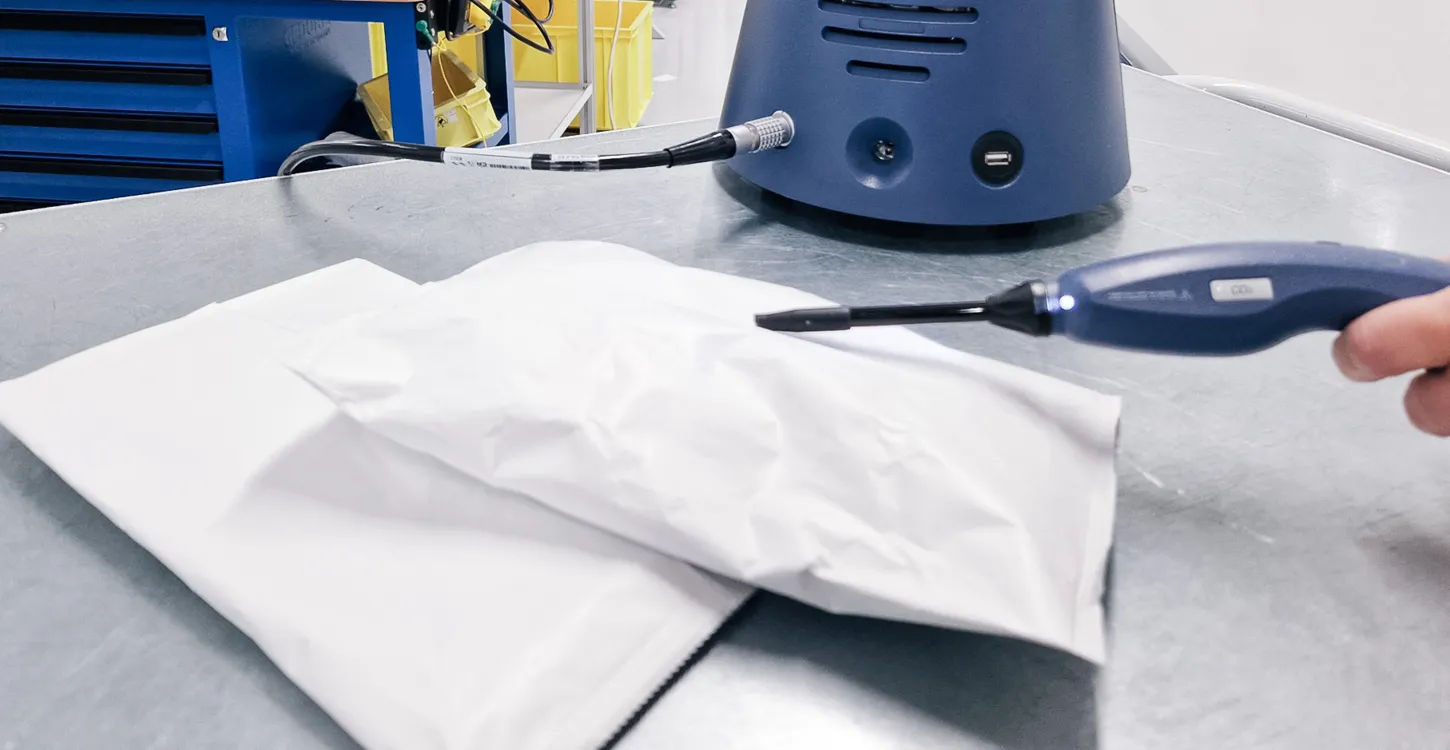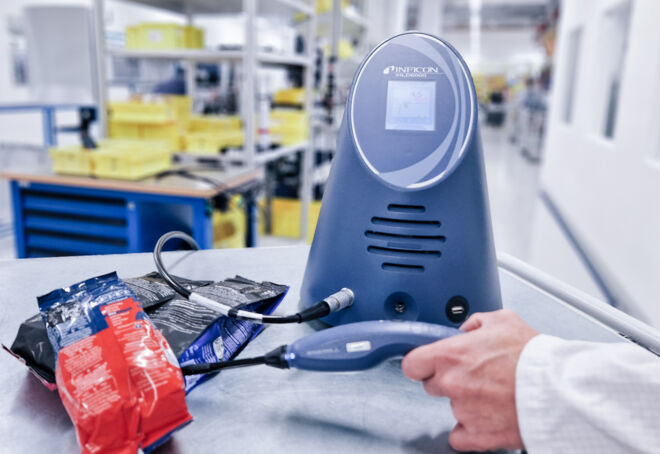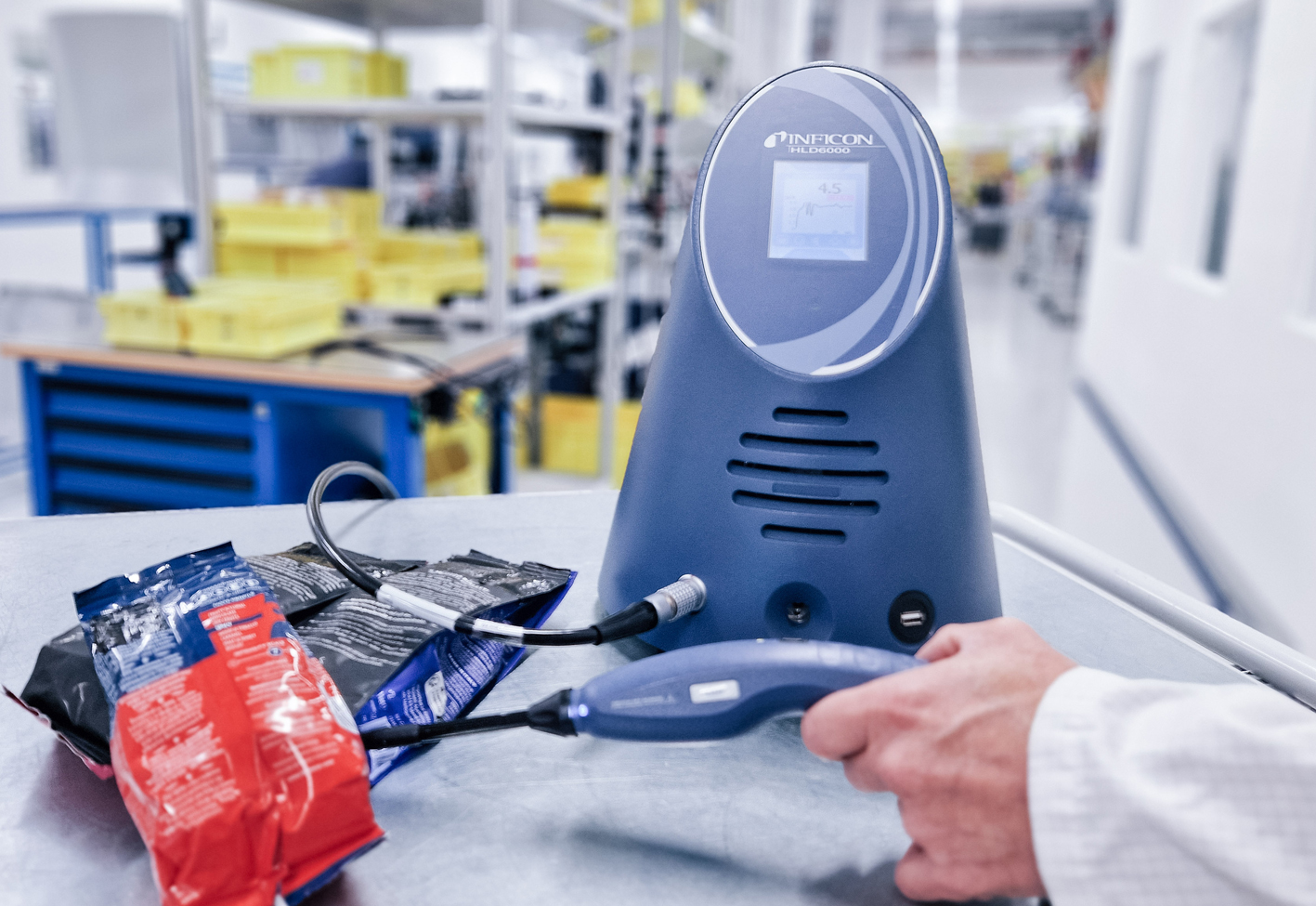Pinpointing Microleaks and Ensuring Packaging Integrity
Leak Location on Modified Atmosphere Packaging (MAP)

In today’s food and medical packaging industries, ensuring packaging integrity, especially of sealed packages, is critical. In protective atmosphere packaging (MAP), accurate leak location is critical to maintaining product freshness and extending shelf life. The Contura Leak Detector from INFICON has taken leak detection to a new level of precision, reliably identifying leaks smaller than 10 microns. Contura not only detects these microleaks, but also provides a quantifiable and reproducible leak rate, offering an accurate measure of package integrity and overall packaging quality.
However, detecting the presence of microleaks is only one part of the challenge. What if you need to pinpoint these tiny leaks, especially in seal areas where capillary microleaks are most likely to occur?
Precise localization of these microleaks can, for example, help to identify weak points in the sealing jaws, allowing targeted improvements to be made to the jaws and cutters. The result is reduced downtime and significantly faster maintenance. It can also help determine if specific steps in the packaging line are causing damage to the package, providing valuable insight into how to optimize the process and prevent future leaks.
Drawbacks of Traditional Methods and the Solution from INFICON
Traditional methods such as water bath testing may not be effective for very small leaks. The sensitivity of the test is limited, and the high pressure needed to force air or gas out of microleaks often leads to the package bursting before leaks can be detected. In addition, water bath testing can damage or destroy the package contents, making this method impractical for many products. Dye penetration tests, such as those using rhodamine, can sometimes help, but they are time-consuming, require toxic substances, and still lead to the destruction of the package.
As many food products such as bakery products, coffee, cheese and meat are often packaged in a protective CO₂ atmosphere to ensure longer shelf life, the CO₂ present in the package can act as a tracer gas. For leak testing MAP CO₂ packages, the HLD6000 Refrigerant Leak Detector with an IR-CO₂ sniffer probe is definitely a more efficient solution. This compact and easy-to-use leak detector offers a non-destructive method for locating leaks in real time. For example, coffee naturally releases CO₂, while other products are often packaged in a CO₂-rich environment to preserve freshness. By utilizing the CO₂ already present, the HLD6000 offers a highly sensitive, safe, and non-invasive means of detecting and locating microleaks down to the seal area, without the need for external tracer gases or destructive testing methods.


The HLD6000 is particularly well-suited for this application due to its unique dual inlet system, which minimizes false alarms by compensating for fluctuating CO₂ concentrations in the background - such as those caused by human breath. This innovative feature, combined with a long-life infrared sensor, ensures highly accurate leak detection while reducing the risks of false positives.
Additional benefits of the HLD6000 include a response time of less than one second and a lightweight, ergonomic sniffer probe for easy handling. The unit also features an intuitive touchscreen display with leak rate trend graphs, a USB interface for data storage and software updates, and multiple language options for ease of use.
In summary, while traditional methods such as water baths or dye testing can be limited or impractical for detecting and localizing microleaks, the HLD6000 leak detector provides a reliable, efficient, and non-destructive alternative to ensure the highest standards of packaging integrity, safeguarding product quality and shelf life.
Do you want to know more?
Are you a manufacturer of modified atmosphere packaging (MAP) and would you like to find out more about the HLD6000 leak detector? Contact us today!
Our webinars offer a first insight into leak detection methods, applications and technologies for the packaging market.